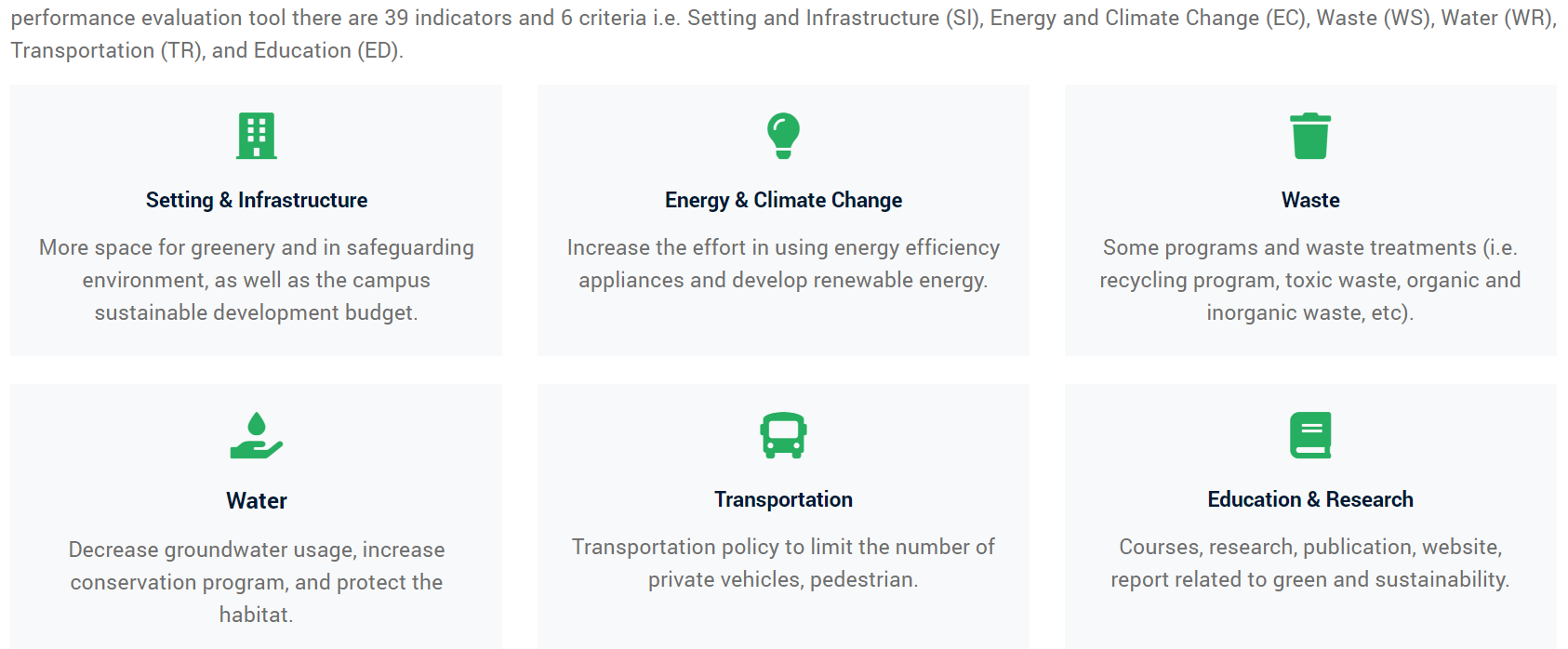Sustainability Affairs
Aims, Vision, and Mission
We believe that universities play an integral role in the joint effort between stakeholders and communities in combating climate change. By promoting and developing novel ideas and innovations, we hope universities could promote energy and water conservation, waste recycling, and green transportation. However, such activities will require change of behavior as well as economic and social problems related to sustainability. For this regard, we hope universities may become a role model for the society and a critical partner to the government.
Initially, we will collect numeric data from universities and process the data provided into a single score that reflects the efforts being made by the institution to implement environmentally friendly and sustainable programs. Universities will be ranked according to this score. We hope that the rankings will be useful to university leaders in their efforts to put in place eco-friendly policies and manage behavioral change among the academic community at their respective institutions.
Our vision is to be an open and respected World University Rankings which brings sustainable impacts to universities around the world. Our missions are:
- Organizing annual World University Rankings on sustainability.
- Encouraging sustainability practices in universities around the world.
- Providing sustainability-related services for universities around the World.
- Facilitating international partnership on sustainability.
The UI GreenMetric World University Rankings, an international ranking of sustainable universities, was developed by the University of Indonesia in 2010. It is known as the most widely used criterion in the world (Muñoz-Suárez, Guadalajara & Osca, 2020). This ranking, which is based on universities' evaluations of their own criteria, has six main criteria:
Installation and Infrastructure (15%)
Energy and Climate Change (21%)
Waste (18%)
Water (10%)
Transportation (18%)
Education and Research (18%)

About Cag University & GreenMetrics
We incorporated priority research and education areas based on Sustainable Development Goals. The academic research on these priority areas are supported, awarded and funded. Çağ University Advances in Greenmetrics Rankings In 2022, Çağ University was ranked 830 in the Greenmetrics rankings. By 2023, significant progress was made, and the university's ranking improved to 747.
The key global objectives such as quality education, good health and well-being, no poverty, decent work and economic growth, gender equality, peace, justice and strong institutions, and partnerships for the goals.
Future Goals
We aim to expand our sustainability initiatives by implementing innovative green technologies across campus and expanding our community outreach programs to address local environmental and social challenges effectively. We also plan to increase our research impact aligned with the United Nations Sustainable Development Goals, addressing critical global challenges and promoting innovation. Additionally, we will strengthen community engagement initiatives to address local challenges and enhance our curriculum with more sustainability-focused courses and projects, preparing our students for leadership roles in sustainable development.
The goal is to be among the top 500 by 2025. In this context, the Sustainability Office was established in 2024 to increase contributions to the Sustainable Development Goals (SDGs). The office has begun various activities focusing on
